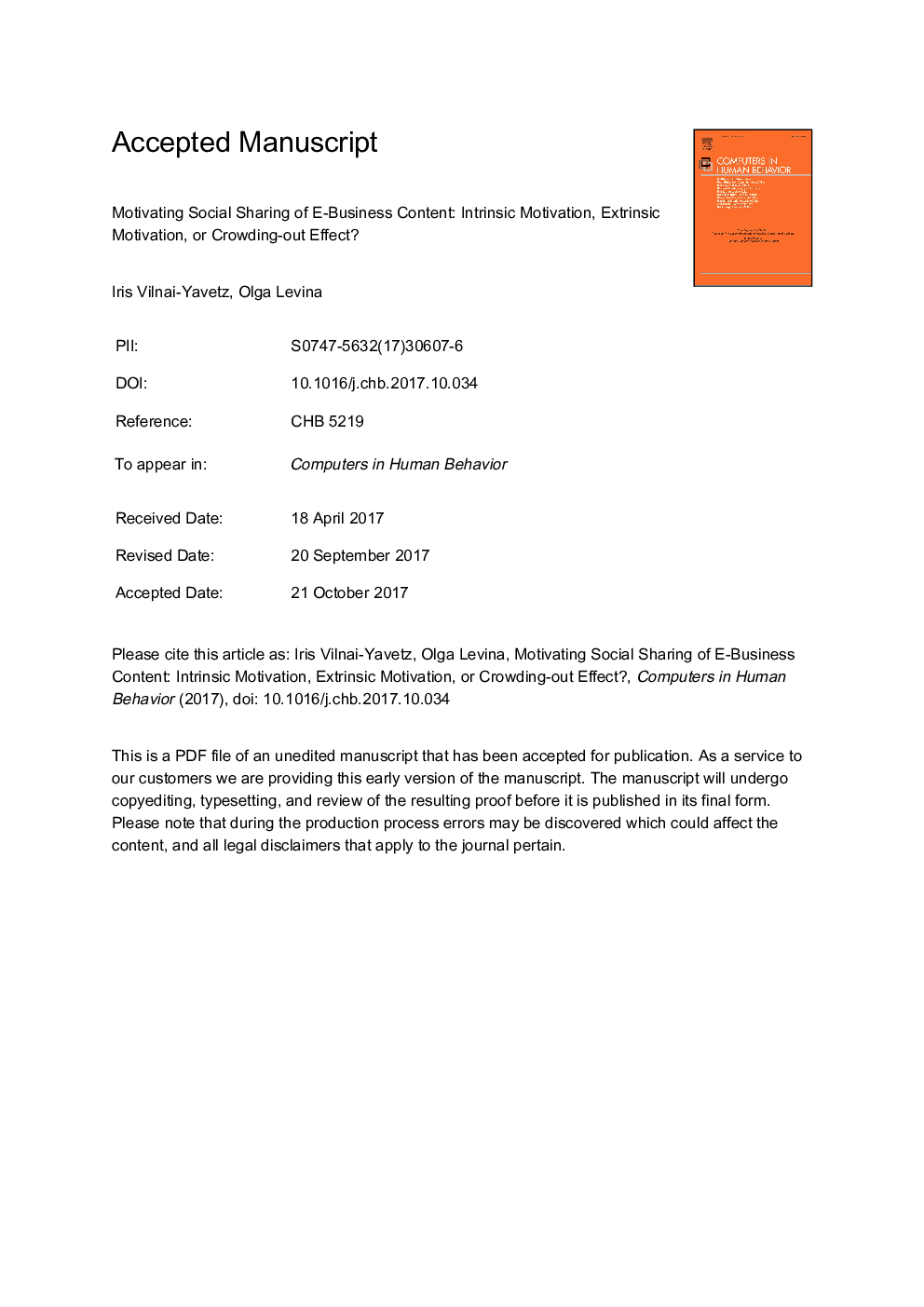| Article ID | Journal | Published Year | Pages | File Type |
|---|---|---|---|---|
| 6836347 | Computers in Human Behavior | 2018 | 49 Pages |
Abstract
This work examines users' motives for sharing commercial content on social networking services (SNS). We first interviewed Internet users to map sharing behaviors and SNS use (n = 409). We then used a mixed-methods design combining self-reports and a scenario-based experimental manipulation to compare intrinsic and extrinsic incentive models among those who already shared commercial content (n = 134). The findings reveal a contradiction between the self-reports, where intrinsic motives for sharing dominated, and the experimental manipulation, where extrinsic (financial) incentives induced greater willingness to share. We suggest two possible processes that may be at play in our results. First, based on the theory of planned behavior, whereby actions which are not motivated by financial incentives are associated with more positive normative beliefs, SNS users are likely to perceive - and therefore self-report - intrinsic motives for social sharing (e.g., altruism) as more important to them than extrinsic motives (e.g., financial rewards). Second, assuming that reported intrinsic motives are real and not a product of social desirability bias, financial incentives may dilute the impact of intrinsic incentives via a crowding-out effect, shifting users' motives for sharing e-commerce content from intrinsic reasons (e.g., enjoyment) toward extrinsic ones with the application of financial incentives (e.g., a discount). The findings have implications for planning incentive models that fit marketing communication strategies and enhance customer engagement efforts.
Keywords
Related Topics
Physical Sciences and Engineering
Computer Science
Computer Science Applications
Authors
Iris Vilnai-Yavetz, Olga Levina,
